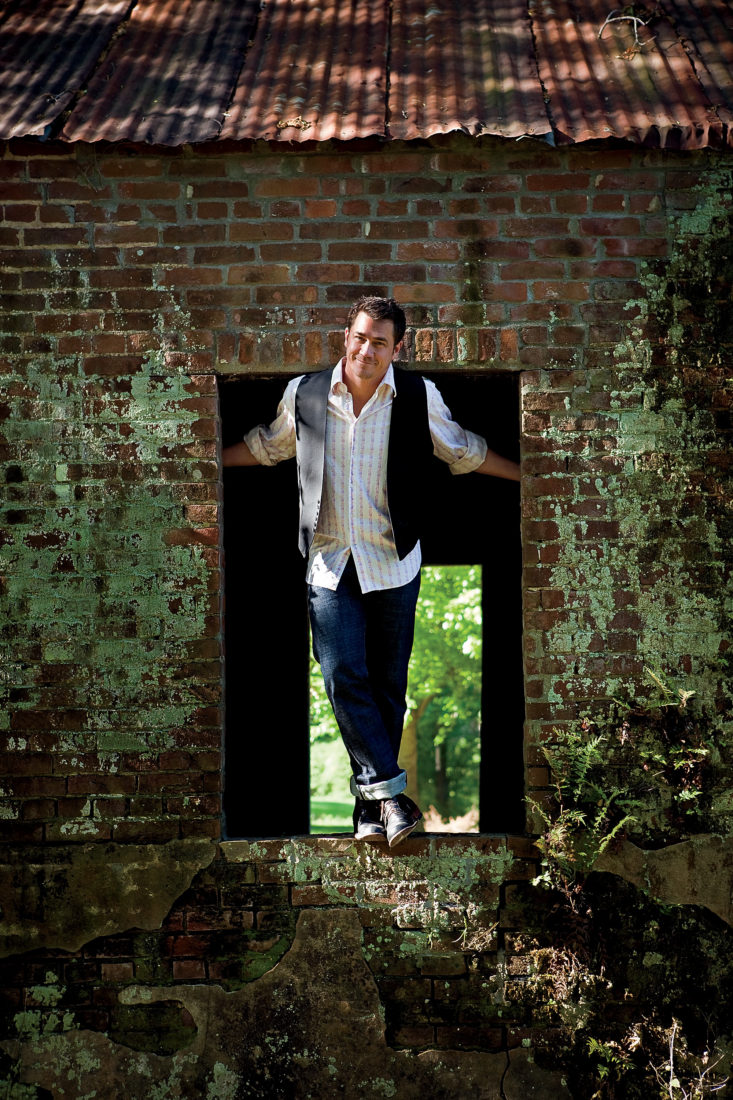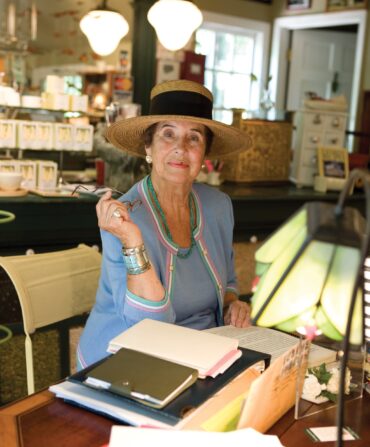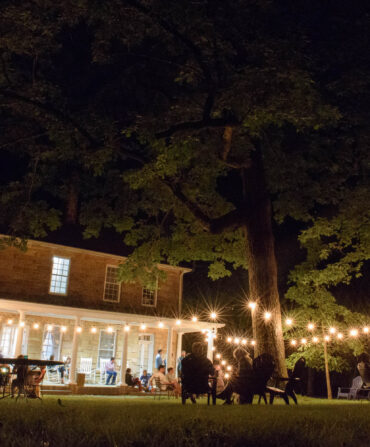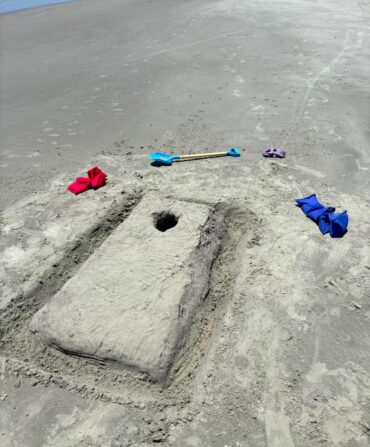The buzz on the second-story porch is unmistakable: bees. They have colonized the plaster walls of Tate Taylor’s new property, a nineteenth-century plantation north of Natchez, Mississippi, flying past the crape myrtles and swarming in corners. The director and screenwriter of The Help (out in August) knows the bees must go. But in a way, they’re why he left Los Angeles and came home to Mississippi. “You know, life, hard life, all around you,” Taylor says. “As a creative person you need to be reminded of that—roadkill, vicious bugs, weather that is so, so severe, heat, green. It’s just an assault down here.”

Photo: Ken Kochey
The main house at Wyolah.
Taylor spent this morning sheltered from spring’s assault, working on his next script for DreamWorks Studios at a dark-grained farm table salvaged from the set of The Help, the movie version of Kathryn Stockett’s best-selling novel. The solitude of Wyolah Plantation’s seventy acres is good, since he looks like a madman when he writes—talking, laughing, and crying as if onstage, with only his rat-sized rescue dog, Earl, and a mounted deer head as audience.
Stockett and Taylor have been friends since they were kindergartners at Covenant Presbyterian Church in Jackson. As teenagers, they “borrowed” Taylor’s grandmother’s car and took a joyride to New Orleans. As young adults, they shared a rent-controlled apartment in New York’s East Village. When The Help became a best seller, Stockett decided her friend should write and direct the movie. “I really wanted a Mississippian to tell the story, to translate it to the screen,” she says. Still, the two never dreamed they would land a deal at a major studio, let alone Steven Spielberg’s. “We didn’t think there was any way a studio would do an all-female biracial drama set in the sixties.” Taylor says. “They just don’t make these movies anymore. They don’t.” And who would have thought this guy—the forty-two-year-old shuffling around Wyolah in camouflage shorts and flip-flops, the Mississippi boy who insists we go out back to shoot his shotgun—would change the status quo?

Photo: Ken Kochey
Taylor wears many hats.
His triumph often gets spun as a fairy tale of overnight success, but at Wyolah, seated on a couch in his living room, Taylor talks about more than fifteen years of hard work in New York and Los Angeles. He got started as a comedian with the Groundlings, the improv group that counts Will Ferrell and Lisa Kudrow as alums. He acted in commercials. He fetched golden retriever puppies and chocolate chip cookies for J.Crew photo shoots. He once drove to Bakersfield, a dusty city northwest of Los Angeles, to film wild turkeys for the director of a beer commercial.
Taylor did serious work, too. His short, Chicken Party, and his first feature, Pretty Ugly People, thrived at film festivals. “He was an established actor in L.A. and knows a lot of people,” says Brunson Green, a friend and The Help’s producer. “He’s finally able to show his talents to a much wider audience.”

Photo: Ken Kochey
Country Gentleman
The director at home.
Taylor never envisioned doing Hollywood work in rural Mississippi, but after filming The Help in Greenwood last summer, he began longing for home. And now that he’s back, he and Stockett want to help aspiring writers and filmmakers in the South. Wyolah’s restoration plans call for four bedrooms and baths on the third floor, where Taylor can hold workshops and host industry hopefuls.
Soon, he’ll tour the country to promote the film. But at Wyolah this afternoon, he’s relaxed. Lynyrd Skynyrd plays in the antebellum house. “It’s on shuffle!” Taylor protests. “I am not a redneck! Edith Piaf was on just before!” Cell phones don’t work out here. The Internet is slow. A delivery truck shows up to drop off trailers of The Help. The driver tells Taylor it took hours to find him, his GPS rendered useless. “You see that?” Taylor says as we watch the truck retreat down the gravel drive. “That’s why I bought this place.”








